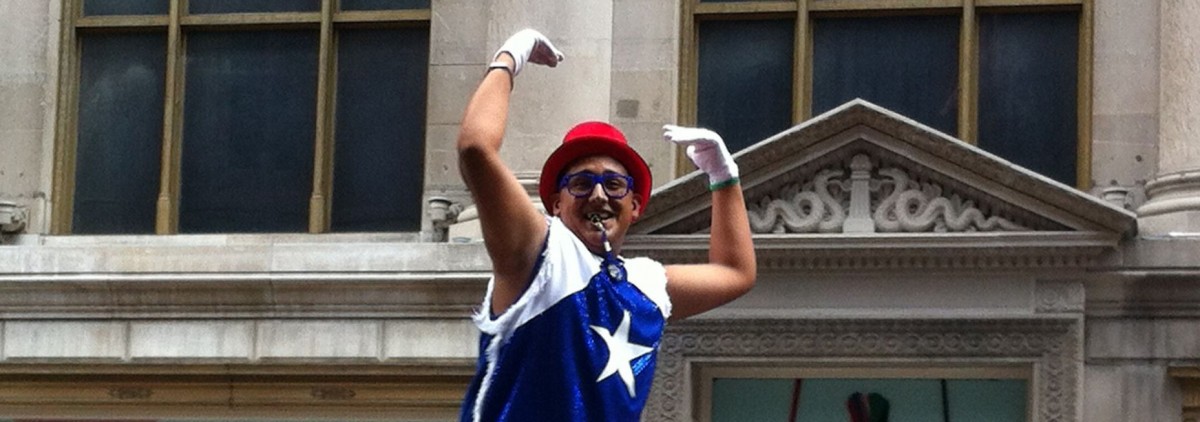That Was Then…
When I was a little boy growing up in 1980s New York City, one of my greatest memories was of the summers I spent in a small drum major group; young girls twirling batons or pom-poms, older girls playing portable xylophones, and a group of drummers (mostly boys including myself) marking the beats. We were a small group of mostly poor and working class families from the South Bronx. Yet, the summers were ours. We practiced our routines and prepared for the Super Bowl event of the summer –the National Puerto Rican Day Parade. We would march down Fifth Avenue in our white hats and fringed red jackets, braving the heat and a two-mile route while our parents walked proudly behind us as and the crowds watching the parade cheered us on.
As a college student and then an alumnus, I marched with members of my fraternity, showing our latest “stroll” moves, but also setting examples for the community that higher education is attainable with hard work and focus. Again, the cheers and comments from the crowds showed us that we were doing something right, and encouraged us to move forward for ourselves and the community. The parade has always been a holiday for me. Even now, the weekend is about the music, the sights, and the images of Puerto Rico. I proudly wear my “Puerto Rico gear” and turn the radio on to hear the classic Salsa that was the soundtrack to my childhood. Though I was born in the U.S., parade weekend reminds next generation Boricuas like me that we are still part of the family.
This Is Now…
As what happens with all families, we have come to a crossroads. For years, the parade’s reputation has been in steady decline. It has changed from a family event to celebrate history and culture, to an event you don’t want your kids going to. It has been lampooned by comedians and is a reason for Manhattan’s Upper East Siders to get away for the weekend. These reactions are insulting. Consider how much drunkenness and bad behavior are associated with events like the St. Patrick’s Day Parade and New Year’s Eve, yet they don’t suffer same level of scorn the Puerto Rican community does.
Meanwhile, the parade itself has become less and less about the community, and more about choreographing an event for the TV cameras. Major sponsors and celebrities are given priority over community organizations and groups, like the one I used to belong to, are relegated to unfavorable positions along the route. One year I watched the event on an English language television station, where the hosts didn’t even recognize some of the well-known artists, instead looking for the cross over mega stars.
The latest controversy shows just how far the event’s focus has shifted. Recent uproar over the flag being placed on a parade sponsor’s beer cans perhaps has less to do with the sponsor as it does with the general disillusionment people have with what the parade has become. I personally don’t have an issue with the can, I bought one myself. I understand how some see this as associating Puerto Rico with alcoholism. But people will drink or not drink beer regardless of what’s on it and we should not give this kind of imagery the kind of power we’ve heaped upon it.
The parade organizers reaction is an example of a “tin ear.” They see the criticism as political opportunists trying to get exposure or trying to take over their jobs. The organizers need to understand that many people, including many next generation working and middle class families, do not see themselves reflected in the parade. The focus on celebrities and endorsements has led to very bad decision making. In 2010, the board had to strip celebrity Osvaldo Rios the honorary title of “Padrino” because of his involvement in a domestic abuse case. In 2011 Coors was again the focus of criticism when they launched their “Emboricuate” campaign — which was deemed too close to the word “emborachate” or “get drunk” with the word “Boricua” embedded in it. The parade has been under increased scrutiny since the 2000 Central Park assaults, and the organizers have faced each criticism without really learning the real lesson: the parade needs to return to its roots.
How do they do that? Well, focus on the individuals that make up the community — the children and the families. Themes should be focused on education, promoting a culture of work and providing positive images outside of “celebrity” that people can look to for inspiration. There probably also needs to be a more diverse set of voices amongst the organizers, people who can bring different types of experiences and can change the current discourse within the rest of the community. And mostly, we have to remember that this parade for many children, this is their Super Bowl. It is their chance to show that they are part of a community with a proud and rich tradition and a chance for the community to show them that they are welcome. We should be focusing on these traditions and less on these scandals.

